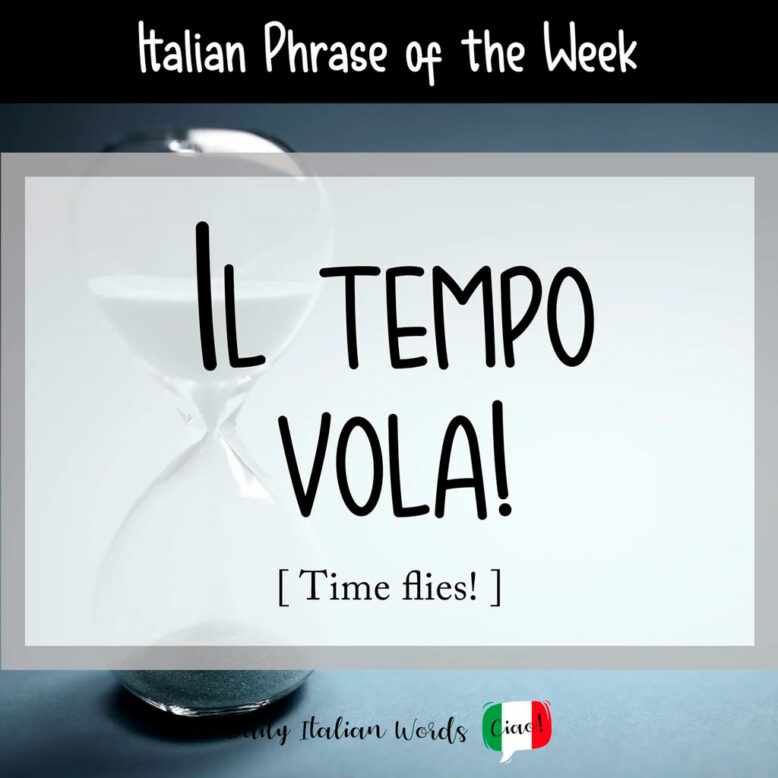They say that time flies when you’re having fun, so let’s indulge in a bit of fun ourselves by learning how to say ‘Time flies!‘ in Italian!
The Italian equivalent of Time flies! is Il tempo vola! The only difference between the two phrases is that Italians say il tempo (literally the time) instead of just tempo (time).

Il tempo vola quando ci si diverte.
Time flies when you’re having fun.
If you want to exclaim How time flies!, on the other hand, it is necessary to start the sentence with come (how). Il tempo and vola are usually inverted for emphasis.
Come vola il tempo!
How time flies!
If this exclamation is preceded by a clause such as È incredibile… (It’s incredible…) or Non riesco a credere… (I can’t believe…) then the word order is flexible.
- È incredibile come voli il tempo. / È incredibile come il tempo voli.
- Non riesco a credere come voli il tempo. / Non riesco a credere come il tempo voli.

Both the Italian and English versions of this idiom are a translation of ‘tempus fugit‘, a Latin phrase coined by Virgil in the first century BC. More precisely, he wrote ‘fugit inreparabile tempus‘ which means “it escapes, irretrievable time“.
Why is it that il tempo vola when we are having fun? According to scientists, pleasant events stimulate the production of dopamine in the brain. This increase causes our subjective “internal clock” to speed up, making elapsed time seem shorter. Likewise, boring or unhappy events reduce the production of dopamine, causing our perception of time to slow down.
Heather Broster is a graduate with honours in linguistics from the University of Western Ontario. She is an aspiring polyglot, proficient in English and Italian, as well as Japanese, Welsh, and French to varying degrees of fluency. Originally from Toronto, Heather has resided in various countries, notably Italy for a period of six years. Her primary focus lies in the fields of language acquisition, education, and bilingual instruction.


